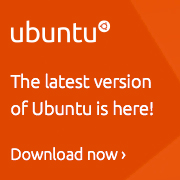Web 2.0 is About Controlling Data
Read this interview with Tim O’Reilly in Wired published just before Web 2.0 Expo.
He knows his stuff in and out, so this interview makes for excellent reading – even on a sunny sunday morning …
Take this excerpt as proof, on platforms and network effects:
[Wired News]: So you think that (control of data) is actually more characteristic of web 2.0 than social networking or Ajax (asynchronous JavaScript and XML) interfaces?
O’Reilly: Absolutely. Anybody who thinks that this is about Ajax is completely missing the boat.
I do think building rich internet applications is an important part of web 2.0. I don’t want to dismiss it, because we are able to build richer application platforms today. But it’s ultimately about network effects, and where do you build services that get better the more people use them? And it’s also about the databases that get created as a result of those network effects.
As far as I’m concerned, web 2.0 is still in it’s really early stages, and the reason is because the data isn’t all owned yet.
The network-effects play is about how you get increasing returns by everybody using your stuff, which is really what Microsoft did on the PC. Here we see it again, where these are winner-takes-all games. The internet looks like an open platform in the beginning, but once somebody gets a lead, their service gets better fast enough, if they’ve harnessed all the right levers, until it becomes a real barrier to entry.
Why, despite many attempts, have we seen nobody able to dethrone eBay? Well, it’s because there are network effects at work in auctions. You have a critical mass of buyers and sellers. We’re seeing that with Google AdWords — it’s just a bigger and better marketplace. There are these tipping points where these services really become monopolistic.
We’re still trying to move people toward really understanding what that new world looks like. I don’t think a lot of people are there. A lot of people still think, “Oh, it’s about social networking. It’s about blogging. It’s about wikis.” I think it’s about the data that’s created by those mechanisms, and the businesses that that data will make possible.
Yes, thinking about business model innovations is more timely than ever, and complex systems based thinking is well suited to this evolving business context …




